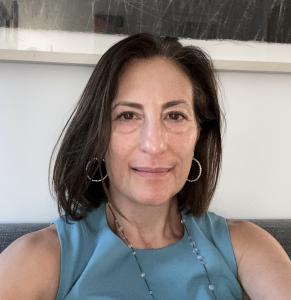Heidi Kling on Developing Essential Life Skills for Recovering Addicts: A Comprehensive Approach to Sustained Sobriety
Heidi Kling Sheds Light on Developing Essential Life Skills for Recovering Addicts: A Comprehensive Approach to Sustained Sobriety
NEW YORK, NEW YORK, UNITED STATES, June 13, 2024 /EINPresswire.com/ -- Heidi Kling, a renowned expert in clinical psychology, continues to make significant contributions to the field through her various roles and extensive experience. Dr. Kling served as a clinical supervisor for PhD candidates at The Derner Institute for Advanced Psychological Studies at Adelphi University as well as The Village Institute, Dr. Kling guides and mentors the next generation of clinical psychologists. Her work focuses on the intricacies of clinical practice and research, with a particular emphasis on psychodynamic psychotherapy, group therapy, and intensive case management.
In addition to her role at Adelphi University, Dr. Kling is a certified life coach through the Certified Life Coach Institute. She effectively combines her deep psychological expertise with life coaching strategies to support individuals in achieving their personal and professional goals.
Educational Background
Dr. Heidi Kling's educational journey is both comprehensive and diverse. She earned her Ph.D. in Clinical Psychology with a specialization in Group Psychotherapy from the Gordon F. Derner Institute for Advanced Psychological Studies at Adelphi University in 1999. Prior to this, she completed her M.A. in School Psychology from the same institution in 1995. Her academic achievements also include a Master’s in Public Health from Yale University School of Medicine’s Department of Epidemiology and Public Health in 1989, where she was honored as a Weinerman Fellow. She holds a Bachelor of Arts in English and General Literature, graduating Phi Beta Kappa with departmental honors from the State University of New York at Binghamton in 1987.
Professional Experience
Dr. Heidi Kling has maintained a thriving private practice in New York City since 2000, specializing in psychodynamic psychotherapy for individuals and couples. Her rich professional history includes roles at The Village Institute for Psychotherapy as a staff psychotherapist and at Gracie Square Hospital as the Senior Clinical Coordinator for the Program for Managing Eating Disorders. Additionally, she held multiple positions at St. Luke's-Roosevelt Hospital Center, including psychology intern and clinical assessor, where she conducted individual and group therapy, psychological assessments, and intake evaluations in both inpatient and outpatient settings.
Research Contributions
Dr. Heidi Kling's research contributions are notable and include her doctoral dissertation on antisocial personality disorder in inner-city female drug users and a comparative study on psychoanalytic treatments. She has presented her research at major conferences, such as the National Meeting of the Collaborative Analytic Multisite Project of the American Psychoanalytic Association, addressing topics like body image, eating disorders, and psychoanalytic processes.
Commitment to Mental Health and Personal Development
Through her multifaceted roles as a clinical supervisor, private practitioner, and certified life coach, Heidi Kling is dedicated to advancing the field of psychology and promoting a holistic approach to mental health care. Her extensive experience, academic contributions, and dedication to patient-centered therapy have established her as a highly respected and influential figure in the mental health community.
Recovery from substance addiction is a multifaceted journey that extends beyond abstaining from drugs and alcohol. Essential life skills play a crucial role in helping individuals navigate their new reality and maintain long-term sobriety. Understanding and implementing these skills are vital steps for anyone in recovery.
Core Life Skills for Recovery
Avoid Risky Situations
Relapse often occurs when individuals encounter people or places associated with their past substance use. It is critical to avoid these high-risk situations to maintain sobriety. Proactively planning to stay away from environments that may trigger a relapse is essential for recovery.
Develop Coping Mechanisms
Many people initially turn to substances to cope with stress. Identifying and utilizing healthy coping mechanisms is crucial. Techniques such as deep breathing, mindfulness, or simply taking a walk can provide relief from stress without resorting to substance use.
Manage Stress and Emotions
Recognizing and interpreting emotions is a challenging yet vital skill in recovery. Reflecting on emotions and understanding their impact on behavior helps individuals employ effective coping strategies to manage stress and avoid relapse.
Develop a Routine
A structured routine can significantly aid in recovery. Ensuring adequate sleep, maintaining a balanced diet, engaging in regular physical exercise, and practicing self-care are fundamental components of a healthy lifestyle that support sobriety.
The Role of Sober Living
Sober Living Environments
Stable, alcohol- and drug-free environments are essential for recovery. Sober living facilities provide a safe space where individuals can live with others who are also in recovery. These environments foster mutual support and accountability, which are crucial for sustained sobriety.
Living in Recovery
Recovery is an ongoing process that involves continuous personal growth and self-reflection. Living in recovery requires individuals to regularly assess their actions and their impacts on others. It is a lifelong commitment to improvement and self-awareness.
Being Able to Ask for Help
Asking for help is a critical skill in recovery. Identifying triggers and warning signs of relapse is important, but seeking support when needed is equally vital. Sober living facilities often encourage residents to reach out for help, fostering a supportive community.
Accepting Personal Responsibility
Accepting personal responsibility is an integral part of recovery. It involves acknowledging one's actions and their consequences, fostering self-awareness and growth. This skill is essential for developing a healthier, more accountable lifestyle.
Substance Abuse Support Groups
Support Groups
Participating in support groups provides an opportunity for individuals to discuss their experiences and share coping strategies. These groups help build social skills and camaraderie, offering a supportive network that is essential for recovery.
Group Discussion Topics
Support groups often discuss various life skills essential for recovery, including:
The importance of nutrition and maintaining a healthy diet.
The role of adequate sleep in overall well-being.
Practicing gratitude and positive thinking.
Identifying and managing triggers and coping strategies.
Engaging in regular physical exercise.
Prioritizing self-care and personal wellness.
For more information or to schedule an interview with Heidi Kling, please contact:
Heidi Kling, PhD
Licensed Clinical Psychologist
18 East 16th Street
Suite 503
New York, NY 10003
About Heidi Kling
Heidi Kling is a prominent clinical psychologist and life coach based in New York City. With a Ph.D. in Clinical Psychology and a specialization in Group Psychotherapy from Adelphi University, she brings over two decades of experience to her private practice, educational roles, and life coaching services. Her work is dedicated to helping individuals achieve their fullest potential through a combination of psychodynamic psychotherapy and life coaching strategies.
Jon Smith
News Live
email us here
Legal Disclaimer:
EIN Presswire provides this news content "as is" without warranty of any kind. We do not accept any responsibility or liability for the accuracy, content, images, videos, licenses, completeness, legality, or reliability of the information contained in this article. If you have any complaints or copyright issues related to this article, kindly contact the author above.





